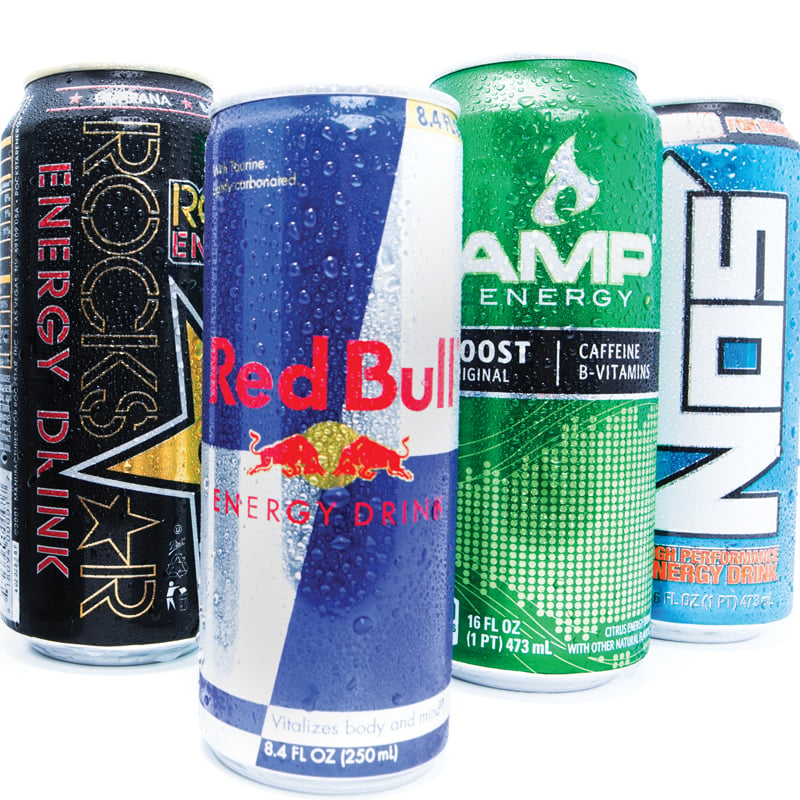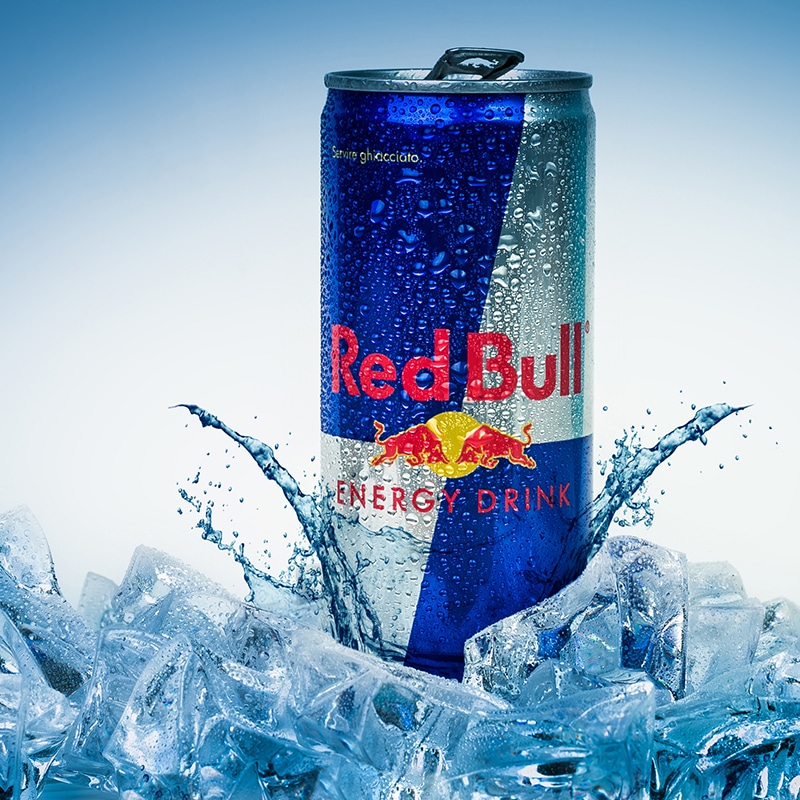Introduction to Energy Drinks
Energy drinks are popular beverages among various age groups. They promise to boost energy, alertness, and physical performance. Generally, they contain a blend of caffeine, sugars, vitamins, and herbal supplements. Some also have amino acids, like taurine, and plant extracts. People consume them for instant energy. This trend has grown significantly in recent years. Consumers look for quick ways to cope with busy lifestyles. This desire fuels the energy drink market growth. However, the many effects of energy drinks on the body have raised health concerns. Understanding these effects is crucial. It can help consumers make informed choices about their energy drink intake. In the sections that follow, we’ll dive deeper into these issues.

The Rise of Energy Drinks: Trends and Consumption Patterns
The popularity of energy drinks has soared in recent years. Quick energy boosts are now common, as people often seek rapid solutions to overcome fatigue. Energy drinks have evolved as a go-to option for many, thanks to their widespread availability and aggressive marketing strategies which promise instant vitality and increased concentration.
In terms of consumption patterns, a diverse demographic, ranging from students pulling all-night study sessions to athletes looking for a pre-workout kick, has embraced these beverages. The workplace is not left out either; professionals frequently consume energy drinks to stave off midday lethargy and meet the demands of long work hours.
Statistics indicate a steady climb in the number of energy drink enthusiasts. The market has responded by expanding product lines and flavors, targeting various consumer preferences. This growing trend is further showcased during gaming and extreme sports events, where energy drinks are often a primary sponsor, highlighting their connection to high performance and endurance.
However, alongside this rise, health experts caution about the effects of energy drinks on the body. Despite this, the trend does not show signs of waning. Instead, the market continually adapts, offering new formulations in response to consumer health consciousness. The challenge remains: balancing the pursuit of immediate energy with the need to understand their long-term impacts on our health.
Key Ingredients in Energy Drinks and Their Functions
Energy drinks pack a mix of active components. Each has a role in providing the energy jolt they are known for. Here’s a breakdown of common ingredients found in these beverages and their primary functions:
- Caffeine: The star stimulant in energy drinks is caffeine. It boosts alertness and decreases fatigue. Most energy drinks contain caffeine levels similar to one or two cups of coffee.
- Sugars: These are quick energy sources. They give a rapid spike in energy and blood glucose levels, which gives the feeling of instant vitality. However, this is frequently followed by a sugar crash.
- Vitamins: B-vitamins often feature in energy drinks. They aid metabolism and help convert food into energy. This supports the energy-boosting claims.
- Herbal Supplements: Ingredients like ginseng or guarana are common. They claim to offer additional energy benefits, though evidence on their effectiveness varies.
- Amino Acids: Taurine is one such amino acid included. It is said to work with caffeine to enhance cognitive performance and endurance.
- Plant Extracts: Some energy drinks incorporate extracts like the yerba mate or green tea. These can provide a gentler energy lift and are sources of antioxidants.
Each ingredient plays a part in the supposed performance-boosting effects of energy drinks. Despite their promised functions, it’s important to be aware of the effects of energy drinks on the body. Not all ingredients are without risk, especially when consumed in large quantities. With this in mind, the following sections will look into the physiological effects of energy drinks and discuss the benefits and risks associated with their consumption.

The Physiological Effects of Energy Drinks
Energy drinks can stir a variety of body reactions. When we consume them, these beverages go to work quickly. They can cause a spike in effects of energy drinks on the body. Firstly, they increase heart rate. This happens as caffeine stimulates the cardiovascular system. Also, energy drinks raise blood pressure, which can be a risk for some people.
Next, these drinks trigger a release of adrenaline. This hormone boosts energy but can lead to restlessness. They also improve focus and alertness in the short term. This is why many reach for an energy drink during long hours of work or study.
Moreover, energy drinks impact sugar levels in blood. With high sugar content, they can lead to a quick surge in glucose. This surge, however, often ends in a sharp drop, causing a ‘crash’. Such crashes can leave you feeling tired and irritable.
One common experience is improved cognitive function. This is due to the combined effect of caffeine and amino acids like taurine. Yet, this benefit might come with a trade-off. The body could experience increased anxiety or jitteriness.
Lastly, these drinks may alter hydration. While they provide fluids, the caffeine they contain is a diuretic. This means more trips to the bathroom, which can lead to dehydration if not careful.
Overall, the effects of energy drinks on the body are complex. They offer both positives and negatives. Users need to weigh immediate benefits against potential long-term impacts. In the following sections, we will explore both the health benefits of controlled consumption and the risks of excessive use.
Potential Health Benefits of Controlled Energy Drink Consumption
When consumed in moderation, energy drinks can offer some benefits. Here is a brief overview:
- Enhanced Physical Performance: For athletes and active individuals, a controlled intake of energy drinks can provide a temporary boost in physical performance.
- Increased Alertness: During moments of fatigue, a small amount can sharpen focus and enhance alertness without leading to overstimulation.
- Better Cognitive Function: The caffeine and amino acids in energy drinks may improve reaction times and cognitive performance in the short term.
- Convenience: Energy drinks are easy to consume and can be more convenient than other caffeine sources, like coffee, when time is scarce.
It’s essential to remember these benefits relate to controlled consumption. Consuming energy drinks in reasonable quantities is key to minimizing the negative effects of energy drinks on the body.
Health Risks Associated with Excessive Energy Drink Usage
Excessive energy drink usage poses significant health risks. These risks not only affect short-term well-being but can also have long-lasting effects on the body. Frequent and high consumption of energy drinks can lead to a range of concerning health issues.
- Cardiovascular Problems: High caffeine and sugar levels can increase heart rate and blood pressure, posing risks to heart health.
- Addiction and Withdrawal: Caffeine is addictive. Overuse can lead to dependency, and withdrawal can cause headaches, irritability, and fatigue.
- Mental Health Concerns: Anxiety, stress, and sleep disturbances are common with high caffeine intake. These can affect mental health.
- Blood Sugar Spikes: The high sugar content can cause sharp rises and falls in blood sugar, leading to energy crashes and risks for diabetic patients.
- Nervous System Overstimulation: Excessive caffeine can overwork the nervous system, causing restlessness, tremors, and difficulty concentrating.
- Dehydration: Caffeine has diuretic properties. It can lead to fluid loss and dehydration if not balanced with water intake.
- Digestive Issues: Some people may experience stomach upset, nausea, or diarrhea from the ingredients in energy drinks.
Bearing in mind these risks, it’s crucial to approach energy drink consumption with caution. The effects of energy drinks on the body can be severe when not consumed in moderation. It is important to be aware of these risks and to limit consumption to avoid potential health problems.
Given the potential health risks, it’s vital to consume energy drinks wisely. Here are some recommendations to ensure their safe use:
- Limit Intake: Stick to moderate amounts. Avoid making energy drinks a daily habit.
- Read Labels: Check the caffeine and sugar content. Know what you are consuming.
- Timing: Avoid energy drinks late in the day. They can disturb sleep patterns.
- Hydrate: Drink plenty of water. Counteract the diuretic effects of caffeine.
- Lifestyle Balance: Ensure you have a balanced diet and regular exercise.
- Consult Healthcare Providers: Especially if you have pre-existing health conditions.
- Age Considerations: Keep away from children and adolescents.
- Mixing with Alcohol: Avoid this. It can mask the effects of alcohol intoxication.
By following these guidelines, consumers can minimize the effects of energy drinks on the body and maintain their overall health.
The Future of Energy Drinks: Innovations and Market Outlook
The energy drink industry is evolving. As health concerns grow, companies innovate to stay ahead. New trends in energy drinks reflect a shift towards health-consciousness. Firms develop drinks with less caffeine and sugar, more natural ingredients, and added health benefits like added vitamins and electrolytes.
Alternatives to traditional energy drinks gain popularity. These include organic options, drinks with no added sugars, and those rich in natural stimulants like green tea extract. Some brands are now offering ‘energy waters’—a lighter choice, aiming to provide hydration with a boost.
The market is responding to demands for transparency. Labels become clearer and more informative. Users can make better choices, knowing exactly what they consume. Brands must provide true value — and not just a quick energy spike — to win customers.
Technology plays a role in shaping the energy drink industry. Apps and smart packaging may soon allow consumers to track their caffeine and sugar intake. It will help them manage consumption for better health.
Sustainability becomes key in market outlook. Eco-friendly packaging and ethical sourcing of ingredients are new selling points. Companies that ignore environmental impact will likely fall behind.
In summary, here is the market outlook for energy drinks:
- Healthier Formulations: Products with less caffeine, sugar, and more natural substances emerge.
- Transparency in Labelling: Clear labels help users understand the effects of energy drinks on the body.
- Technology Integration: Apps and smart packaging provide consumption insights.
- Sustainability: Brands embracing eco-friendly practices gain consumer trust.
The energy drink market is set to grow, with a focus on health and sustainability driving innovations. Consumers demand better options, so companies must adapt to their needs for continued success.
